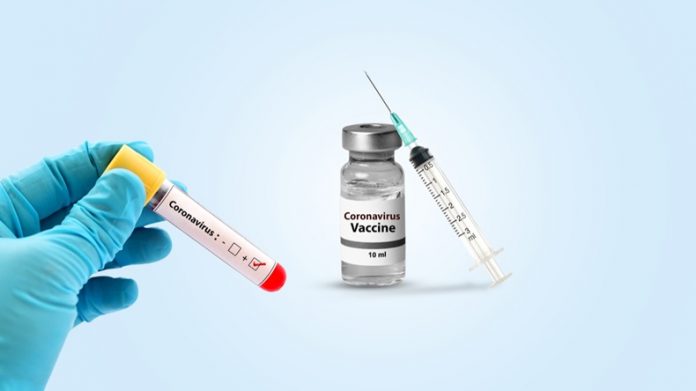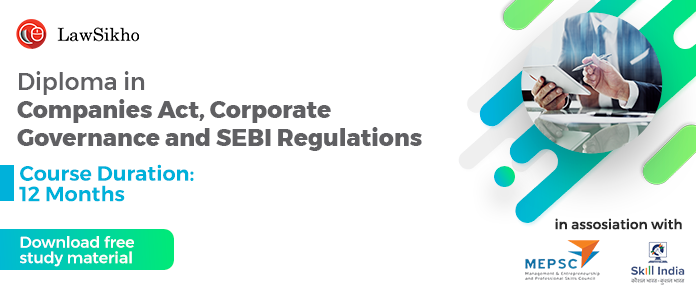This article is written by Rida Zaidi, a law student of the Faculty of Law, Aligarh Muslim University. The aim is to analyze the vaccine mandate and its objective in the coming future.
Table of Contents
Introduction
‘COVID-19’ being a deadly, contagious disease, has affected people across the globe. The COVID-19 pandemic has endangered the lives of every human being. The pandemic has shown us some unprecedented times, ‘especially the second wave’ of COVID-19 in India which was harrowing. There was an absolute health crisis, which had never been encountered by people. Vaccines came in for the survival of the human race and protecting people from life-threatening viruses. The Government provided the vaccines to the people after receiving approval from the WHO. The Government has emphasised the importance of getting vaccinated from time to time. In India, the highest number of vaccines that were administered in a single day was around 25 million and around 70,000 plus vaccination centres were established across the Country. The Government has emphasized vaccine drive for the well being of individuals’ health as well as the community’s health as an infected individual can spread the virus in the community affecting thousands of others. The question which has arisen quite a few times before the Supreme Court recently is regarding the vaccine mandate that has the Government made the vaccination mandatory for all to avail essential benefits or services. The Supreme Court has repeatedly stated that the vaccine mandate is not mandatory but is voluntary. Mandating the vaccine might violate the fundamental rights of the citizens. Though in the interest of the larger community, individuals’ rights can be dominated.
This article shall deal in detail about the vaccine mandate and the surrounding opinion of the Supreme Court on relevant issues.
Dr Jacob Puliyel v. Union of India (2021)
A writ petition was filed by Dr Jacob Puliyel regarding the efficacy of the vaccine mandate inflicted in India. The plea was filed against the mandate coercing the citizens to get vaccinated. Dr Jacob Puliyel was a former member of the National Technical Advisory Group on immunization and wanted the Government to release the data regarding undertrials undertaken of vaccine administration. The plea also instructed the Central Drug Standard Control Organization to release whether the application of the vaccine approval was accepted or rejected. The plea also stated that it is not filed for challenging the vaccine programme carried out by the Government.
Contentions of the petitioner
- The petitioners contended that there have been decisions of the executive on the insistence of a vaccine mandate without which the people would lose their jobs both in the public and private sector.
- The petitioners also contended that the vaccine mandate is violative of the fundamental right to life under Article 21 of the Constitution.
- The petitioner attracted the attention of the Court by citing the examples of various states such as Madhya Pradesh where ration is not being administered to the people who are not fully vaccinated, in the state of Delhi only fully vaccinated people can travel in public transports and in the state of Maharashtra where no government employee can work without being fully vaccinated and would be treated as if he is on leave without pay to make them aware about the intensity of the issue.
- The clinical data regarding the number of people who were vaccinated and the adverse effects of the vaccines encountered by those people ought to be put into the public domain.
- The Government is issuing new mandates every day so it is not possible to challenge all such orders.
Observation of the Court
The Court observed that firstly the vaccine mandate has not been made mandatorily at least for now at this stage. The disclosure of clinical data can be brought into the public domain up to the extent where privacy is not infringed. The vaccines were given an emergency authorization as the times were critical and tragic but the authorization was given by scientific experts after taking into account the manufacturers and the scientific guidelines set by the Indian Council of Medical Research (ICMR). The Court held that only if the vaccine mandate is not in proportion to personal liberty, the Court shall deal with the concerned matter. The Court also held that there is vaccine hesitancy among the people specifically the rural regions of the Country and any contrary action would have adverse effects regarding the efficiency of the vaccine and its side effects upon the minds of such people. The Court mentioned that the Government has never mandated the vaccine and the same has always been voluntary. The Court also pointed out that the issues of the petitioners would be addressed. The petition was adjourned to a later date.
Saniyal Narayan & Ors v. the State of Kerala & Ors (2021)
Appellants: Saniyal Narayan & Ors
Respondents: State of Kerala & Ors
Court: Kerala High Court
Bench: Honourable Suresh Kumar
Date of judgement: 20th October 2021
Facts of the case
- The writ petitions were filed by several students of higher education of final and postgraduate students which were disposed of by the courts by a common judgement.
- The directorate of collegiate education has issued a notice of reopening of colleges after the Government had substantially made relaxation in the rules after the normalcy of the COVID-19 pandemic regarding the opening of colleges for the above-mentioned class of students.
- The Directorate of Education has circulated a notification that only those students and staff would be permitted to enter the colleges and attend the class who are fully vaccinated, partially vaccinated, have recovered from COVID-19 within 90 days from the date of reopening etc.
- Those students who could not take the vaccine out of medical reasons have to state their medical conditions in a certificate and submit it before the Directorate.
Contentions of the petitioners
- The petitioners have abstained from getting vaccinated resulting from the fear of its adverse effects. The guidelines of the colleges concerning vaccination to be mandatory is against their right to privacy as they wish to withhold from getting vaccinated.
- The guidelines are against the right to life under Article 21 of the Constitution as the administration of vaccines has not been made mandatorily at this stage by the Central Government.
Contentions of the respondents
- The fundamental rights as guaranteed under Part III of the Constitution are not absolute and for the interest of the public, reasonable restrictions could be imposed upon them by the Government.
- The orders made by the Directorate of education are not violative of the fundamental rights of the students and the concerned staff as individuals’ interest is always subservient to the interest of the public.
- The impugned orders are constituted for suppressing the spread of the COVID-19 virus and protecting the lives of the citizens.
Observation of the Court
The Court held, after analyzing the pleadings by both the petitioners and the respondents, that the petitioners are self-centred and their focus lies only in their interest rather than the interest of the whole community. The State Government while formulating policies for repressing the pandemic was thinking in a broader sense that is for the public at large and not just the interests of the individual. The Court also held that the COVID-19 restrictions of getting a vaccination and wearing masks were issued by the State Governments under the authority of the Disaster Management Act 2005. The Court was of the view that advantages conferred upon the vaccinated people are not discriminatory. A deep study under the supervision of experts was held regarding the precautions to be adhered to for the prevailing situation. The Court highlighted the point that whenever an order is issued in the interest of the public, the fundamental rights under Article 19 and Article 21 are not violated, as under Article 19 reasonable restrictions can be imposed by law and under Article 21 no one shall be deprived of his life and liberty except by procedure established by law. The order or guidelines issued for the legislation of vaccines is only a measure by the Government to protect the collective health of its citizens and is not at all arbitrary, illegal or irrational. It was observed by the Court that the larger public interest should make way for the alarming violation of the human rights and rights guaranteed under Article 21 of the Constitution. The writ petitions were dismissed.
Academic Resources Advancement Movement v. State of Tamil Nadu (2021)
Petitioner- Academic Resources Advancement Movement
Respondents- State of Tamil Nadu
Bench- Acting Chief Judge and Justice P.D. Audikesavalu
Date- 22nd November 2021
Facts of the Case
A writ petition was filed by the Academic Resources Advance Movement against the double vaccination policy for the school teachers. The petition of Mandamus under Article 226 is instituted for directing all the authorities including public and private to not make vaccination a requisite for attending classes and duties by the students and the teachers.
Observation of the Court
The Court was of the view that going against the double vaccination policy is against the public interest because if teachers will abstain from getting vaccinated there is a high risk that the children will also get infected if any of the teachers test positive. The teachers for their sake cannot put the lives of thousands of children coming to school at risk. PIL is a public matter so the Court has to analyse the situation keeping in mind equity which is protecting the interests of everyone. WHO has approved the vaccines with the assistance of medical experts thus, it is advisable to get vaccinated. Moreover, the Court was of the opinion that it is not just the individual liberty of the teachers but it is also the individual liberty of the students. the Court also held that a PIL is not maintainable in service matters and thus the petition is withdrawn and dismissed.
Registrar General v. the State of Meghalaya (2021)
Appellant: Registrar General
Respondents: State of Meghalaya
Bench: Justice Biswanath Somadder, Justice HS, Thangkhiew
Facts of the case
The Meghalaya Government had issued several notices that all the taxi drivers, shopkeepers, street vendors etc. have to get fully vaccinated to resume their business.
The issue before the Court
Are the vaccine mandate orders for the taxi drivers, shopkeepers etc. constitutional and whether these orders affect the rights of the citizens?
Observation of the Court
The Court was of the view that the right to life as guaranteed under Article 21 of the Constitution covers the right to health i.e.a person is at liberty to undertake a medical treatment or not as per his wish. Vaccination is the need of the hour but not a necessity. But there has to be a balance between the individual’s rights and the rights of the larger community. Moreover, reasonable restrictions could be imposed upon fundamental rights by law if it is required. Vaccination is required to protect the well-being of the people but doing it forcibly or coercively takes away the essence of the rights of the people. The Court pointed out that though till now there has not been any vaccine mandate which creates fear regarding the stripping away of the livelihood of any section of the society. The Court also observed that administering the vaccine in a consensual manner without infringing the rights of the receiver is acceptable whereas doing the same coercively is ultra vires the Constitution. The State must be aware and sensitize its citizens regarding the pros and cons of getting vaccinated especially when there has been a lot of misinformation about the adverse effects of the vaccine amongst the members of the marginalized community. The people too should be adaptive and consider these orders as pervasive advisory and not a coercive measure. The Court directed the concerned authorities to analyse whether the guidelines are being followed as instructed.
Conclusion
There has been a lot of hassle regarding the vaccine mandate amongst different sections of society. The Supreme Court has emphasised that the vaccine mandate is voluntary and not mandatory. As the right to health falls under the right to life as guaranteed under Article 21 of the Constitution, a person has the right to choose what is injected into his body and if a person abstains from getting vaccinated he is at liberty to not get vaccinated. Though vaccination is the only approach that should be undertaken under the prevailing circumstances the method of administration ought not to be coercive or in a way that hampers the right of the individual. The Government has repeatedly emphasised the significance of getting vaccinated but has never forcefully imposed it on them. The health care factor is the duty of the government to care for its citizens. The Disaster Management Act (2005) and the Epidemic Diseases Act (1897) take all necessary steps to prevent the spread of any disease or empower the Central Government to mitigate new laws. Vaccination protects the community spread as it decreases the potency of the disease. The procedure of vaccination should be fair and just. The Vaccine mandate should issue sanctions at public places and necessary institutions like schools and colleges but the unvaccinated people should also be given an opportunity for example by attending classes online etc. the people should be sensitized regarding the pros and cons of getting vaccinated. If people are vaccinated through a fair procedure with their consent and being fully informed as to what is being administered to them there is quite some probability that we will conquer the pandemic with flying colours.
References
- https://economictimes.indiatimes.com/news/india/vaccine-not-mandatory-2116-adverse-events-deaths-after-immunisation-centre-tells-sc/articleshow/87994260.cms
- https://www.hindustantimes.com/india-news/centre-offers-vaccine-support-to-african-nations-battling-omicron-101638209911097.html
- https://www.firstpost.com/india/instead-of-a-blanket-covid-19-vaccine-mandate-india-should-allow-institutions-to-make-their-own-decision-9928861.html
- https://economictimes.indiatimes.com/news/company/corporate-trends/coronavirus-vaccine-push-in-india-the-job-gets-the-jab-done/articleshow/87559082.cms?from=mdr
Students of Lawsikho courses regularly produce writing assignments and work on practical exercises as a part of their coursework and develop themselves in real-life practical skills.
LawSikho has created a telegram group for exchanging legal knowledge, referrals, and various opportunities. You can click on this link and join:
https://t.me/joinchat/L9vr7LmS9pJjYTQ9
Follow us on Instagram and subscribe to our YouTube channel for more amazing legal content.
 Serato DJ Crack 2025Serato DJ PRO Crack
Serato DJ Crack 2025Serato DJ PRO Crack










 Allow notifications
Allow notifications


